Here Aphrodite went ashore (Cyprus in the era of copper and bronze)
In addition to Crete, there are other islands in the Mediterranean, and quite large — Sicily, Sardinia, Malta and, of course, Cyprus — the island closest to the shores of Asia, and therefore the paths of ancient migrations could by no means pass it. And if Crete is firmly connected in the minds of people with the name of the man-beast of the Minotaur, then Cyprus is, according to legend, the land where the goddess Aphrodite, the goddess of love and beauty, once came out of the sea foam.
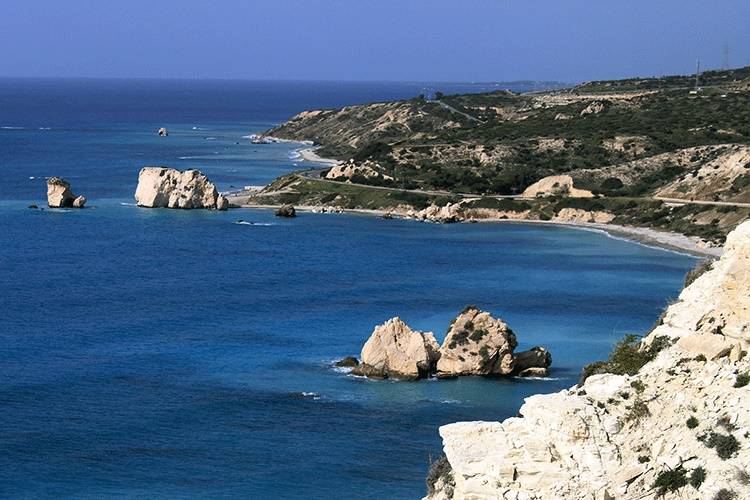
Cyprus really, even now, remains an amazingly beautiful place ...
There are two mythological versions of the birth of a beautiful goddess. Homer believed that the god Zeus was the father of Aphrodite, and the sea nymph Dion was his mother. The version of Hesiod, however, is much more entertaining. According to her, the god Kronos cut off his reproductive organs to his father Uranus and threw them into the sea, where his sperm mixed with sea water, snow-white foam was obtained, and it was from this that Aphrodite was born.
Around Gaia, blazing love wish, and everywhere
Spread around. Unexpectedly left hand
Son stretched from ambush, and right, grabbing a huge
The sickle is sharp-toothed, the compartment at the parent is sweet
Member of childbearing and threw back his strong scale.
The member of the father is child-bearing, cut off with a sharp iron,
By the sea for a long time worn, and white foam
Beat around from imperishable member. And the girl in the foam
In that originated.
"Theogony" Hesiod
However, today we’ll become acquainted not so much with the legends, as with the history of this unique island, which, like Crete, largely shaped the look of the long-lost Mediterranean civilization. It’s necessary to begin with the fact that at one time it was apparently connected by an isthmus to the Asian mainland and, for example, dwarf elephants and hippos migrated to the island on this mainland. However, it was they who later became dwarf, when the waves of the sea cut it off from the mainland. There were animals on it, but there were no people. For the time being.
Ancient parking of people of the Stone Age in Cyprus. (Sea Museum in Ayia Napa, Cyprus)
And then in the X - IX millenniums BC people got here by sea and most directly contributed to the extinction of dwarf animals, as can be seen from the large number of burnt bones found in caves in the southern part of the island.
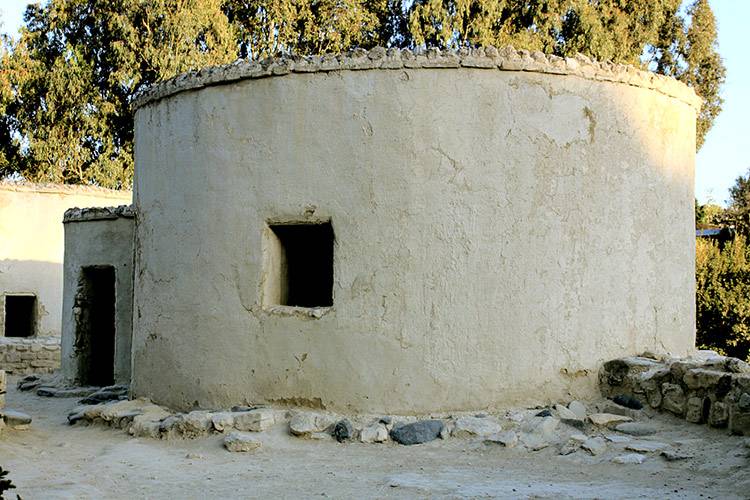
"House" of the ancient Cypriot "city" of Hirokitia.
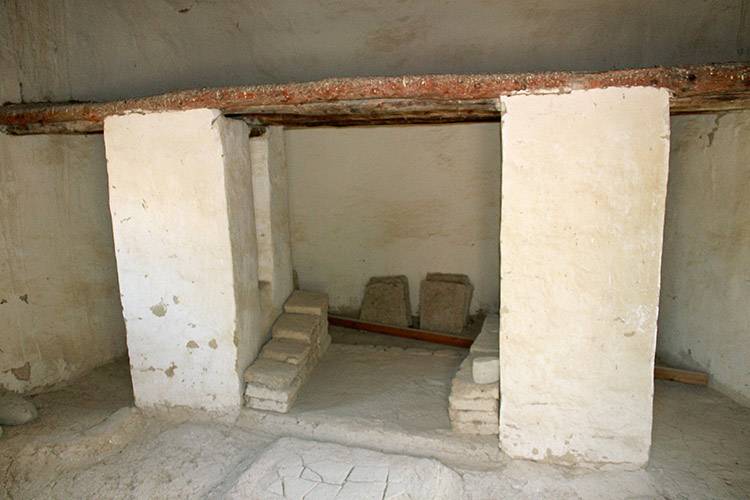
This is how it looked from the inside ...
It is known that the first settlers were already engaged in farming, but have not yet mastered the pottery, so this period in Cyprus belongs to the "pre-ceramic neolith".
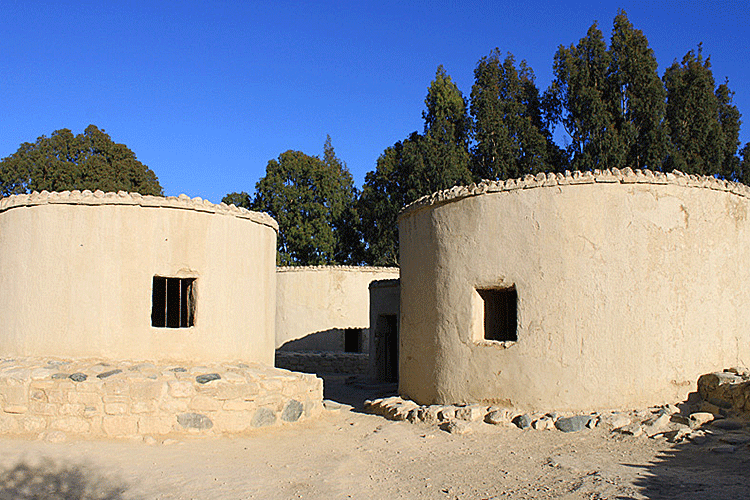
Inside Khirokitia was closely. The houses stood one to another, and even were surrounded by a high stone wall. Interestingly, there is a wall, but no signs of an attack on the “city” were found, that is, more than a thousand (!) Years, the Hirokitians lived under the protection of the wall, but no one attacked them? And then suddenly they took it, they all left it and they left ... and no one else settled 1500 for more years at this place! Why? Nobody knows! Such here Cyprus presents to archaeologists riddles!
Primitive people from southern Anatolia or the Shiro-Palestinian coast came to the island with dogs, sheep, goats, pigs, although morphologically these animals were still indistinguishable from their wild relatives. The settlers began to build round houses and all this happened in the X millennium BC!
The remains of the Cypriot pygmy hippopotamus.
The skull of an ancient dwarf elephant.
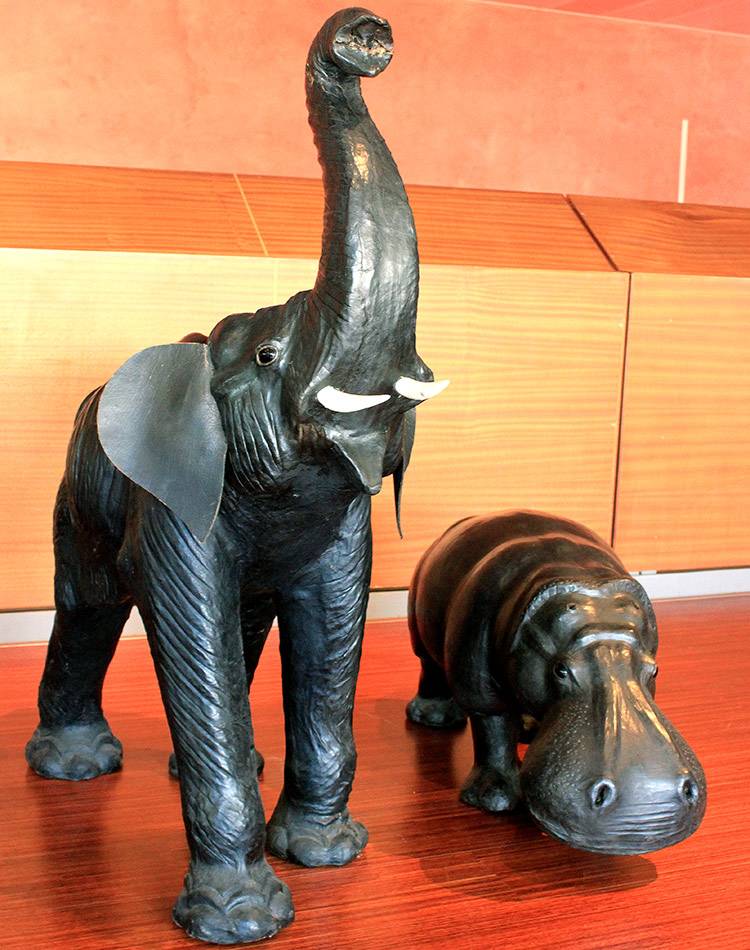
You can see the reconstruction figures of the Cypriot dwarf elephant and the Cypriot pygmy hippo in the Museum of the Sea (Thalassa museum) in Ayia Napa.
The settlements of that era were excavated throughout the island, including Khirokitia and Kalavasos off the southern coast. All subsequent time, the inhabitants of the dishes were made of stone, but at the end of the Neolithic (around 8500 - 3900 BC) the islanders learned to work with clay and create vessels that they burned and decorated with abstract patterns of red on a light background.
Here they are - these vessels from the Museum of the Sea in Ayia Napa.
The culture of the subsequent period of the Aeneolithic, that is, the copper-stone age (around 3900 - 2500 BC) could be brought to the island by a new wave of immigrants who came from the same regions as their earlier Neolithic predecessors. Their art and religious beliefs were more complex, as evidenced by stone and clay female figures, often with increased genitalia, symbolizing the fertility of people, animals, and soil — that is, reflecting the basic needs of the then agrarian community. In the second half of the period of chalcolith (or the Eneolithic, which is the same thing), people began to produce small tools and decorative ornaments from native, that is, native copper (chalkos), which, by the way, is called chalcolith.
Interestingly, not on this here the first inhabitants of the island sailed here?
The unique geographical position of Cyprus, which lay at the crossroads of sea routes in the eastern Mediterranean, made it an important center of commerce in antiquity. Already in the early Bronze Age (approximately 2500 - 1900 BC) and the Middle Bronze Age (around 1900 - 1600 BC), Cyprus established close contacts with Minoan Crete, and then with Mycenaean Greece, as well as with the ancient civilizations of the Middle East: Syria and Palestine, Egypt and South Anatolia.
Beginning in the first part of the second millennium BC, Middle Eastern texts belonging to the kingdom “Alasia”, a name that is most likely synonymous with all or part of the island, indicate the links of the then Cypriots to the Syrian-Palestinian coast. The rich resources of copper provided Cypriots with the goods that were of high value in the ancient world and were in great demand throughout the Mediterranean basin. Cypriots exported large quantities of this raw material and other commodities such as opium in jugs that resembled opium poppy capsules in exchange for luxury items such as silver, gold, ivory, wool, scented oils, chariots, horses, precious furniture and other finished goods. .
Minoan vessels cannot be confused with any other - once there is an octopus, it means that the influence of the culture of Crete is evident!
Ceramics of prehistoric Cypriots, especially those that were produced in the early and middle bronze centuries, are exuberant and imaginative in nature and design. Terracotta figurines were also made in large quantities, as indicated by their finds in the tombs of the Bronze Age. As in the period of chalcolith, they most often depicted female figures that symbolize regeneration. Other funerary objects, especially those buried with men, include bronze tools and weapon. Gold and silver jewelry, and cylindrical seals appear in Cyprus already in 2500 BC.
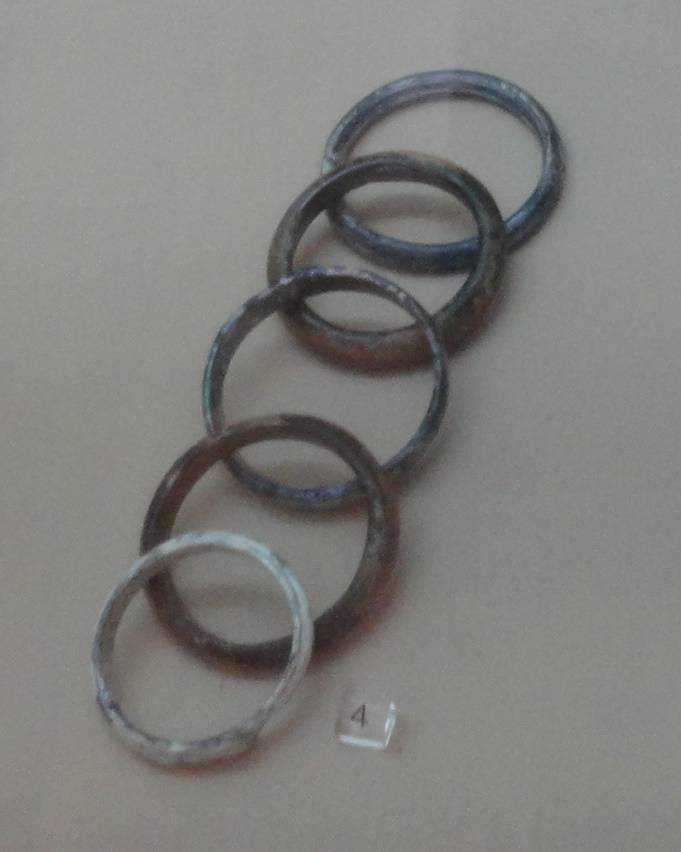
Cypriots and Cypriots loved to adorn themselves with bracelets, even glass ones (Larnaca Archaeological Museum)
And they were anointed with perfumed oils, which is why all the museums of Cyprus are full of such glass vessels.
In the Late Bronze Age (around 1600 - 1050 BC) copper on the island was produced on a massive scale, and the trade in copper by Cypriots expanded to Egypt, the Middle East, and the entire Aegean region. The correspondence between the pharaoh of Egypt and the ruler of Alazii, dating from the first quarter of the fourteenth century BC, provides us with valuable information about the trade relations between Cyprus and Egypt. This is confirmed by items from earthenware and alabaster, which were imported to Cyprus from Egypt during this period. The shipwreck finds in Ulu Burun, found on the southwest coast of Anatolia, indicate that the ship sailed westward, possibly visiting other Levant harbors, and that it loaded 355 copper bars (ten tons of copper) in Cyprus, as well as large storage vessels for agricultural products, including coriander.
The ship that was carrying this cargo. Reconstruction (Sea Museum in Ayia Napa).
When you see such vessels in front of you, you involuntarily ask yourself: how much wood was needed to burn it? Here in Cyprus there is no forest left! (Larnaca Archaeological Museum)
The undeniable influence of the Aegean Sea on the Cypriot culture in the late Bronze Age can be seen in the development of writing, bronze products, stone carving, jewelry production and some ceramic styles, especially in the twelfth century BC, when Mycenaean immigrants periodically arrived on the island. Around 1500 BC Cypriots began to use the letter, which is very similar to the linear letter A of Minoan Crete. Burnt clay tablets found in urban centers such as Enkomi (on the east coast) and Kalavasos (on the south coast) have been found. In the late Bronze Age, Cyprus was also an important center for the production of works of art, which feature a mixture of local and foreign influences. Stylistic features and iconographic elements borrowed from Egypt, the Middle East and the Aegean Sea are often mixed in Cypriot works. Undoubtedly, the foreign motives and significance that they had were reinterpreted on the spot, as they became part of the distinctive local artistic traditions. Cypriot artisans also traveled abroad, and in the twelfth century BC, some Cypriot metallurgists may have settled in the west, on the islands of Sicily and Sardinia. In the late Bronze Age, Cyprus clearly maintained strong ties with the Middle East, especially Syria, as evidenced by finds in urban centers with palace buildings from the fourteenth and thirteenth centuries BC, such as Enkomi and Keating, and rich cemeteries of the same period luxury items from a variety of materials. From the beginning of the fourteenth century, a significant influx of high-quality Mycenaean ships was found in Cyprus, which are found almost exclusively in the tombs of the aristocratic elite. With the destruction of Mycenaean centers in Greece in the twelfth century BC, political conditions in the Aegean Sea became unstable, and refugees left their homes in search of safer places, including Cyprus.
Anchors and press for the extraction of olive oil. (Larnaca Archaeological Museum)
Sculptures of the era of classical Greece. (Larnaca Archaeological Museum)
It was they who initiated the process of Hellenization of the island, which then took place over the next two centuries. The most important event for Cyprus between 1200 and 1050 year BC. er was the arrival of several successive waves of immigrants from the Greek mainland. These newcomers brought with them and perpetuated on the island Mycenaean burial customs, clothing, ceramics, manufacturing, and military skills. At this time, Achaean immigrants brought Greek to Cyprus. The Achaean society, politically dominant in the 14th century, created independent states ruled by the Wanakta (rulers). The Greeks gradually took control of large communities, such as Salamis, Keating, Lapithos, Palaopathos and Salt. In the middle of the eleventh century, the Phoenicians occupied Ketis on the southern coast of Cyprus. Their interest in Cyprus was caused mainly by the rich copper mines of the island and its forests, which provided a rich source of timber for shipbuilding. At the end of the ninth century, the Phoenicians established the cult of their goddess Astarte on the island in the monumental temple in Ketis. The stele found in Kethys announces the representation of the Cypriot kings of Assyria in 709 BC. Under Assyrian rule, the kingdom of Cyprus flourished, and the Cypriot kings enjoyed some independence while they regularly paid tribute to the Assyrian king. From the seventh century BC There are records that at that time there were ten (!) rulers of Cyprus, who ruled in ten separate states. One might think that the area of these states was very small, like the island itself, but since there were ten of them and they all peacefully got along, this indicates, firstly, the tolerance of their inhabitants, and secondly, that there just enough. Some of them had Greek names, others had obviously Semitic origin, indicating the ethnic diversity of Cyprus in the first half of the first millennium BC. The tombs at Salamis presuppose both the wealth and the external connections of these rulers in the eighth and seventh centuries. In the sixth century, Egypt under Pharaoh Amasis II established control over Cyprus. Although the Cypriot kingdoms continued to maintain relative independence, the significant increase in Egyptian motifs in Cypriot works of art from this period reflects a clear increase in Egyptian influence.
The Romans on the island were also noted and left behind such floor mosaics.
In 545 BC under Cyrus the Great (approximately 559 - 530 BC) the Persian Empire conquered Cyprus. However, the new rulers did not interfere with what was happening on the island, and did not try to establish their religion there. Cypriot troops participated in the Persian military campaigns, independent kingdoms paid the usual tribute, and Salamis won first place on the island. By the beginning of the fifth century BC. The island was an integral part of the Persian Empire. Well, then the famous Greek-Persian wars began, and the Greeks from the mainland began to dominate Cyprus again.
P.S. Interestingly, the memory of this is preserved, and if you have a mustache, a straight nose, dark eyes and a head of hair, then in Cyprus you can easily be asked: "Continental Grik?" That is - "You are a continental Greek? On the island it is a kind of elite. They are given big discounts, especially in taxis ... Not like foreigners from Europe.
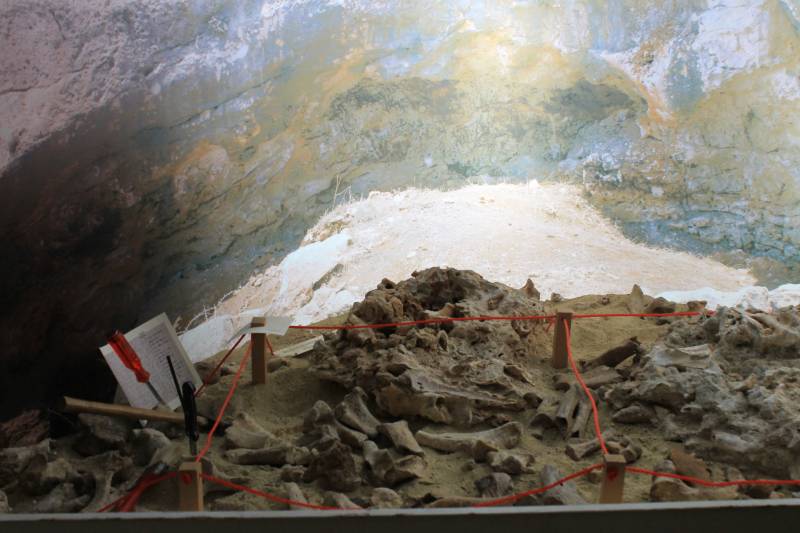
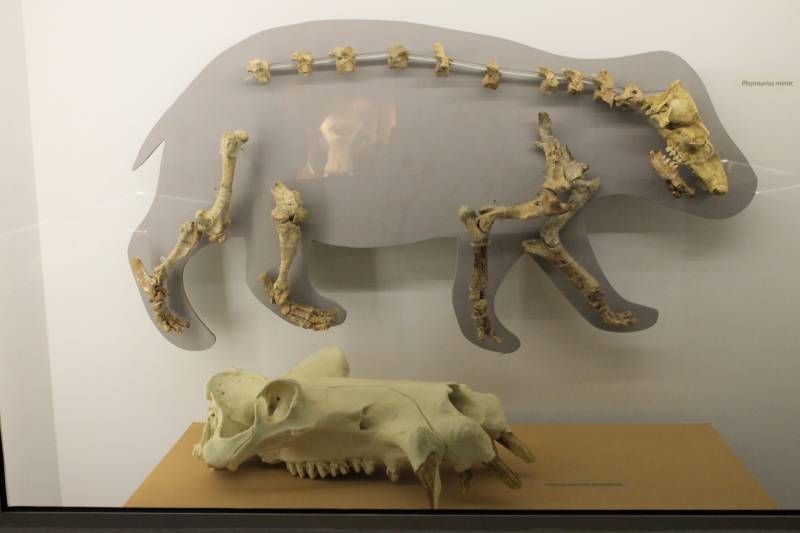
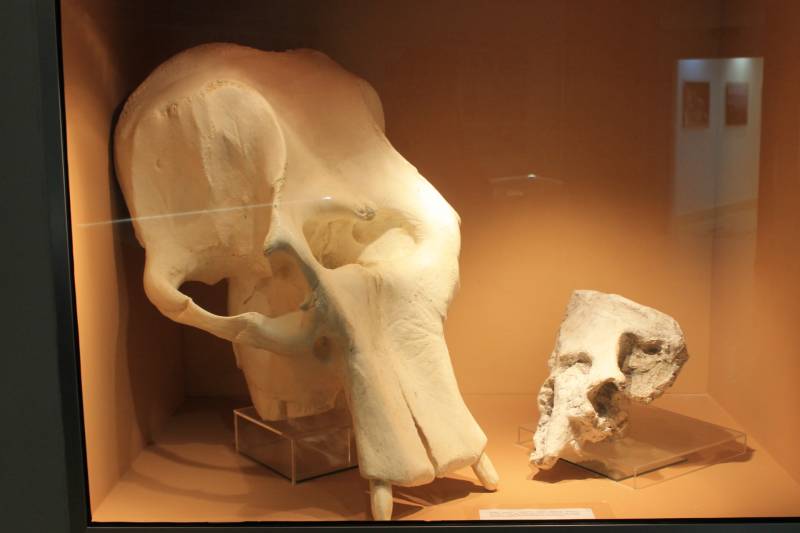
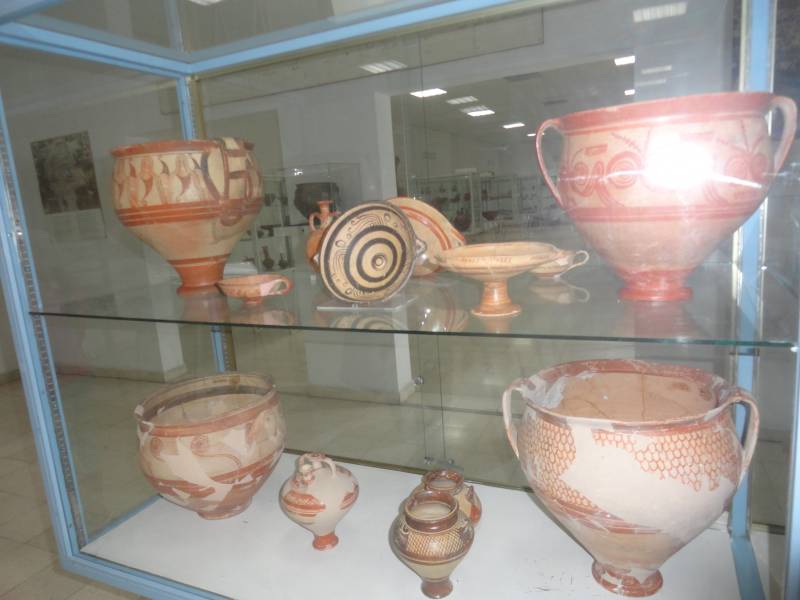
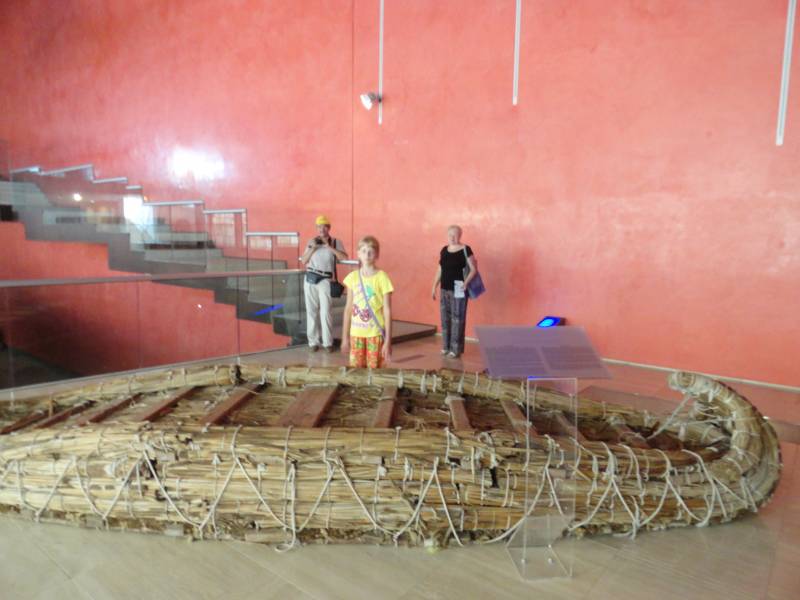
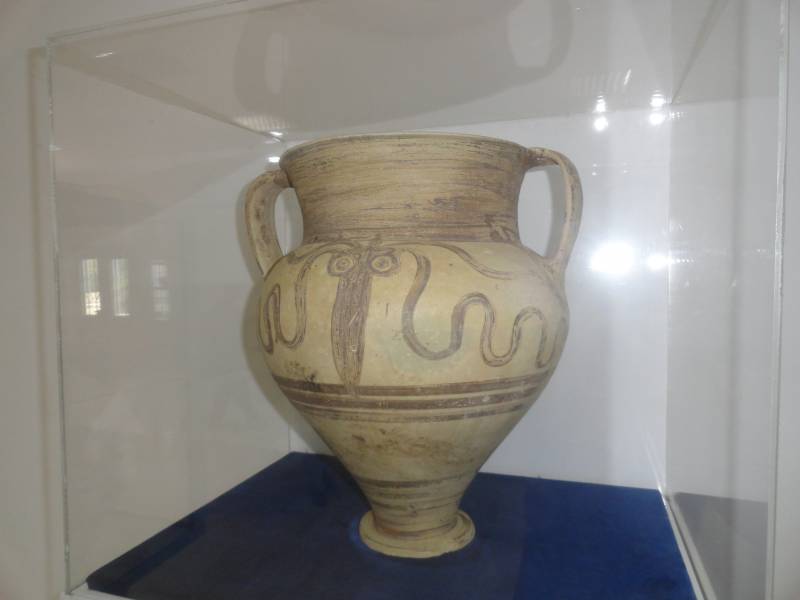
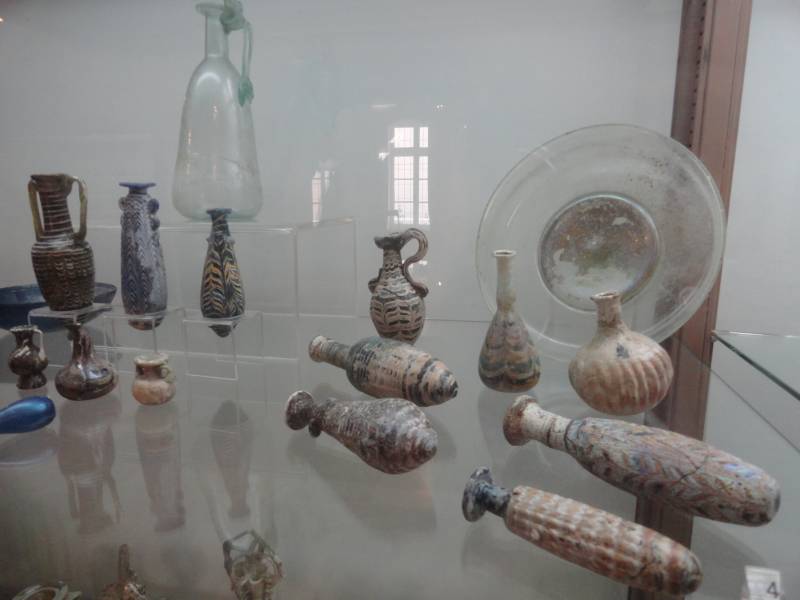
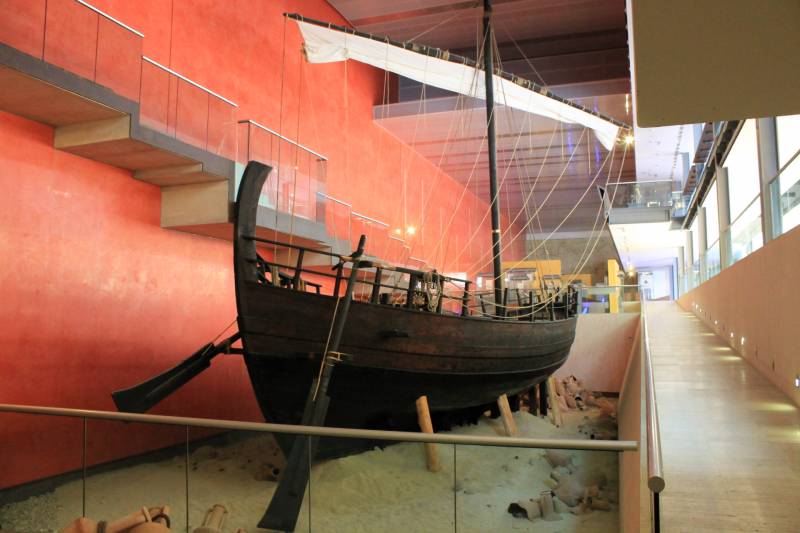
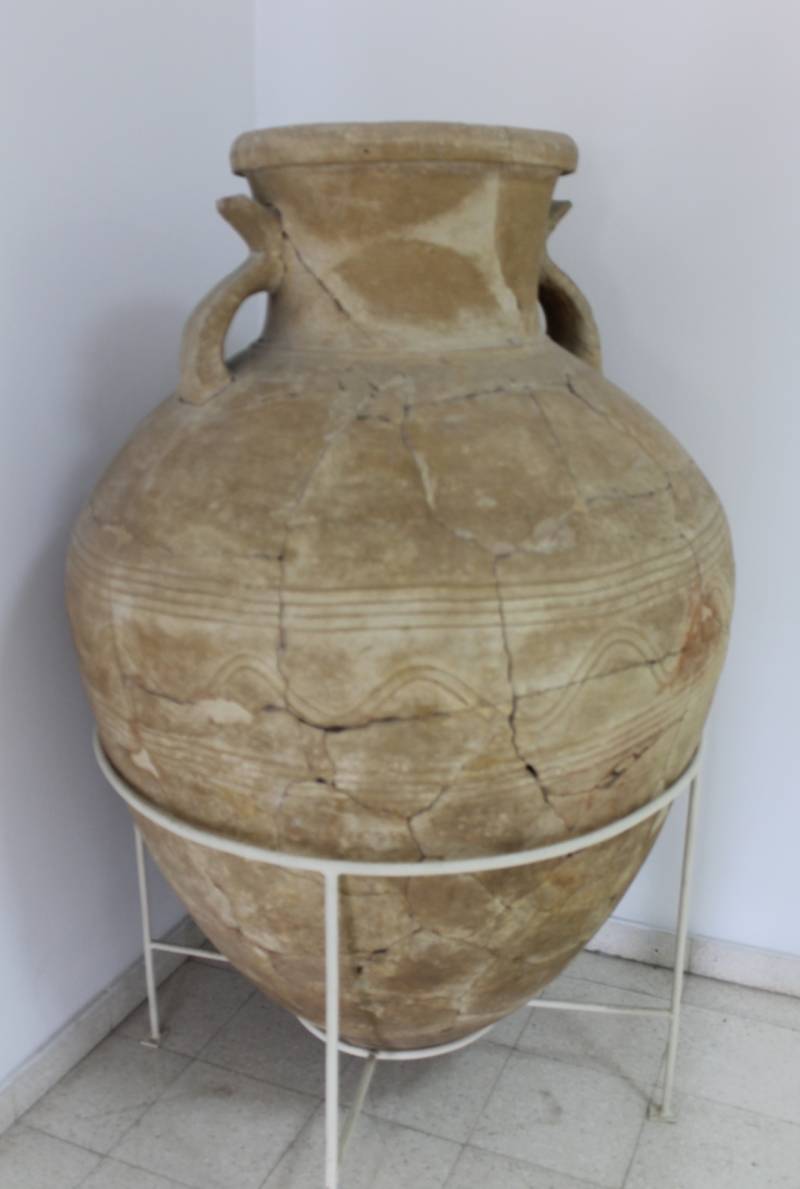
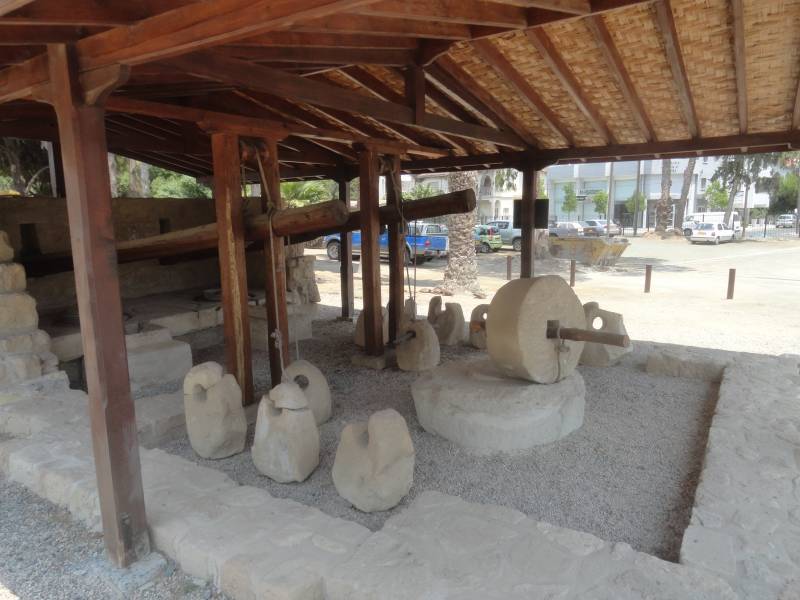
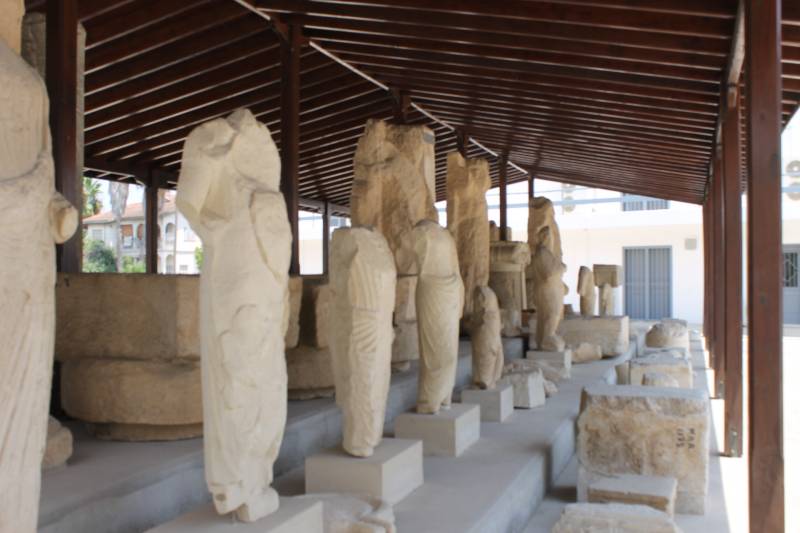
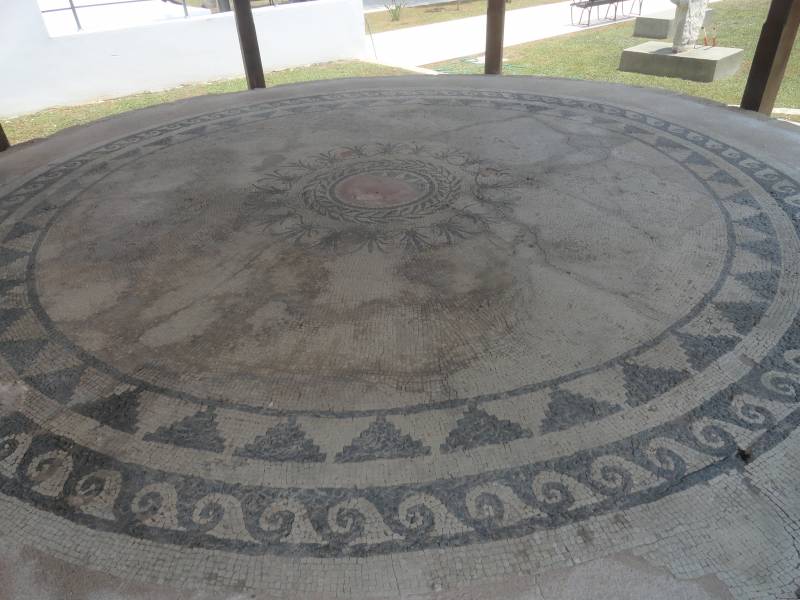
Information